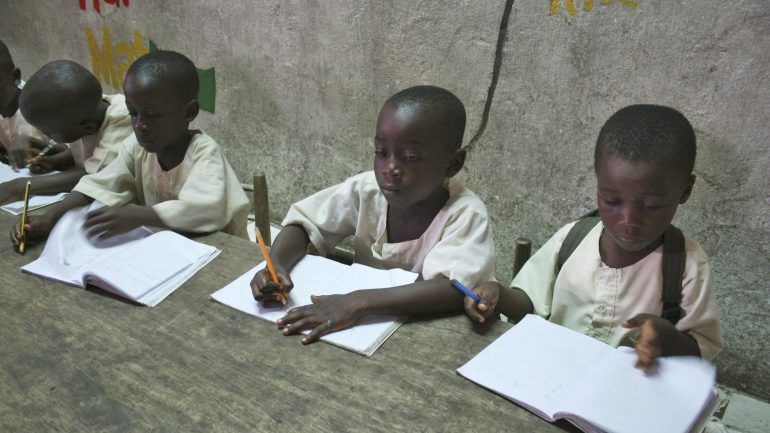Liverpool and Portugal forward Diogo Jota dies at 28 in car crash
Angola: Hundreds of children cross border to go to school in Namibia every day

Hundreds of Angolan children cross the border of Santa Clara in Namacunde, Cunene province, early in the morning every day to study in nearby Namibian schools due to the conditions and English teaching.
Lusa talked to Edvânia Domingos, a 15-year-old Angolan student in the eighth grade of the Mennonite Brethren Community School in Omafo, Namibia near the border.
She goes back home early in the afternoon, along with a few dozen Angolan colleagues from the same Namibian school, run by the Mennonite evangelical church.
“The teaching is very educational, people learn more, it is different from Angola,” said Domingos, who every day has to take a taxi, on the other side of the border, to get to school, almost 10 kilometres from Santa Clara.
“It’s very far, we can’t get there on foot. We get a taxi,” she said.
In Omafo, in the Namibian province of Ohangwena, Angolan students are learning English as their main language, as it is an official language in Namibia, but also Kwanhama, the Angolan national language of the South, which is also spoken in northern Namibia.
“We want to learn English and bring a good future to Angola,” added Domingos.
However, it is in the history subjects that these students see the biggest differences as they learn the history of the liberation struggle of Namibia, which only gained its independence from the apartheid regime of South Africa in 1990, and was previously colonised by Germany.
This leaves out the anticolonial struggle against the Portuguese occupation, culminating in the proclamation of Angola’s independence in 1975 that these students only learned in primary school.
“We learn almost everything they teach here [in Angola], only history is not the same,” said Rosalina Fernandes, another of these students, attending the eighth grade of the same school.
Like her classmates, she crosses the border every day, in a ritual that has become normal, even for the police on both sides, taking into account bilateral agreements on migration, with practically free movement between residents in that cross-border area: “They don’t ask [for visas or passports], they identify us with this stamp from the school,” said Fernandes.
According to the Angolan authorities, there are also Namibians who regularly cross the border to study in schools and institutes in Ondjiva, the capital of the province of Cunene.













Leave a Reply
Be the First to Comment!
You must be logged in to post a comment.
You must be logged in to post a comment.